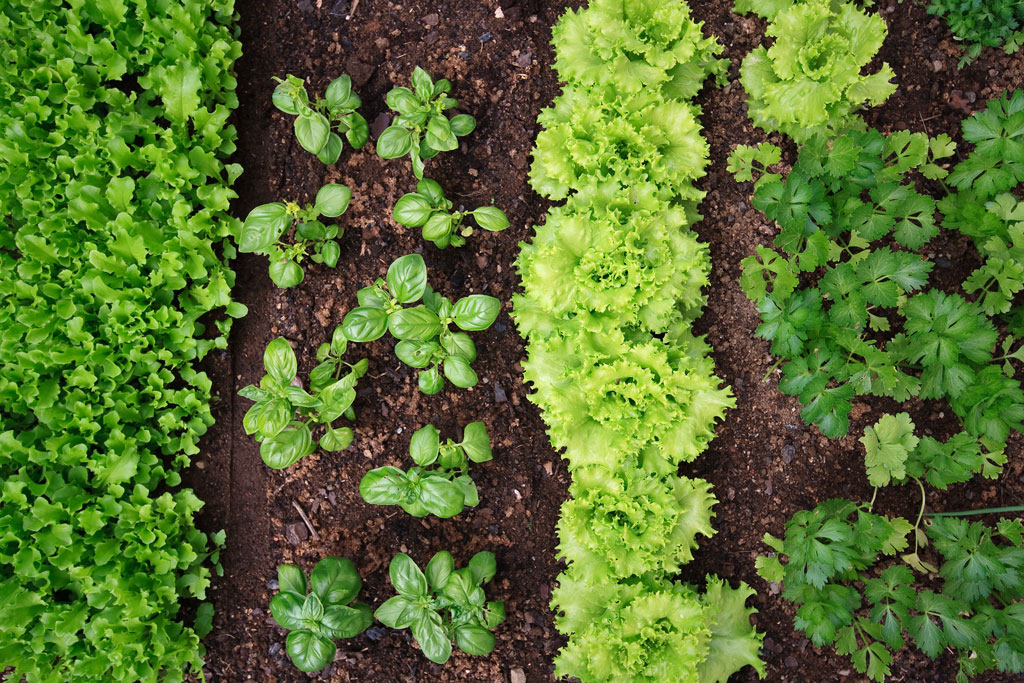I recently watched the movie The Martian in which the main character (spoiler alert!) grows potatoes on Mars using lamps, dirt composted with human waste and water made from a chemical reaction. Fortunately, there appear to be no aphids, grasshoppers or slugs on the red planet. Here on Earth, we are not so auspicious.
>> Staying Healthy
With the plenitude and variety of chemical pesticides on the market, they may seem like the easiest way out of a bug pandemic in your garden. However, you can grow a healthy, robust garden filled with luscious produce without chemicals and without pests.
The first step is to keep your garden free of debris, weak plants, weeds and mulch previously infected with pests or disease. Clear it out and clean it up! You can also bolster the nutrient density and condition of your soil, paving the way for plants to grow up big, strong and more resistant to disease. Start with organic dirt, compost and natural fertilizers and mulches. For example, seaweed mulch provides enriching minerals and repels slugs.
>> Insect Attraction
The garden environment is naturally alive with insects. The trick is in knowing which are harmful and which are going to devour those nasty cutworms for breakfast, lunch and dinner. Garden.org has a pest control library complete with a “Bug Mug Photo Index” to help you know your bugs. You can then turn your beds into happy habitats for a defensive line of ladybugs (eat aphids and whiteflies), nematodes (eat cutworms and beetles) and praying mantes (munch on most garden pests).
Story continues after a quick message from our sponsor below.
Attract an army of good insects by installing a mini insectary of flowering plants designed to attract and harbor beneficial bugs. For example, lupine is a prolific flowering plant that attracts hoverflies, and yarrow entices graceful ladybugs. You can learn more by visiting: eartheasy.com/grow_garden_insectary.htm
>> The Natural Stuff
Alongside chemical pesticides, there are a couple natural deterrents you can buy at your local nursery. Food-grade diatomaceous earth acts like sandpaper on insects, tearing up their exoskeletons. Thuricide, or BTK, is a favorable bacteria that lives in dirt and, in its spore phase, acts as an insecticide against caterpillars, gypsy moths, webworms and more.
Soap and oil sprays are touted as the most effective homemade pesticides. A tablespoon of Dr. Bronner’s Castile Soap, for example, added to water and sprayed directly on invaders can dissolve insects’ cuticles. To suffocate pests, include a cup of clean cooking oil and apply once every seven days. Just keep in mind that these will kill ALL insects, good or bad.
>> Keep It Simple
There are many tricks to maintaining a vibrant garden and keeping out pests. In the end, balance and simplicity are best. Your vegetables, flowers, herbs and fruits aspire to greatness. You just have to nurture, watch, and grow with them. May your beds be fruitful and your sky full of ladybugs.
By S. Michal Bennett
As Featured In: Summer/Fall 2016



